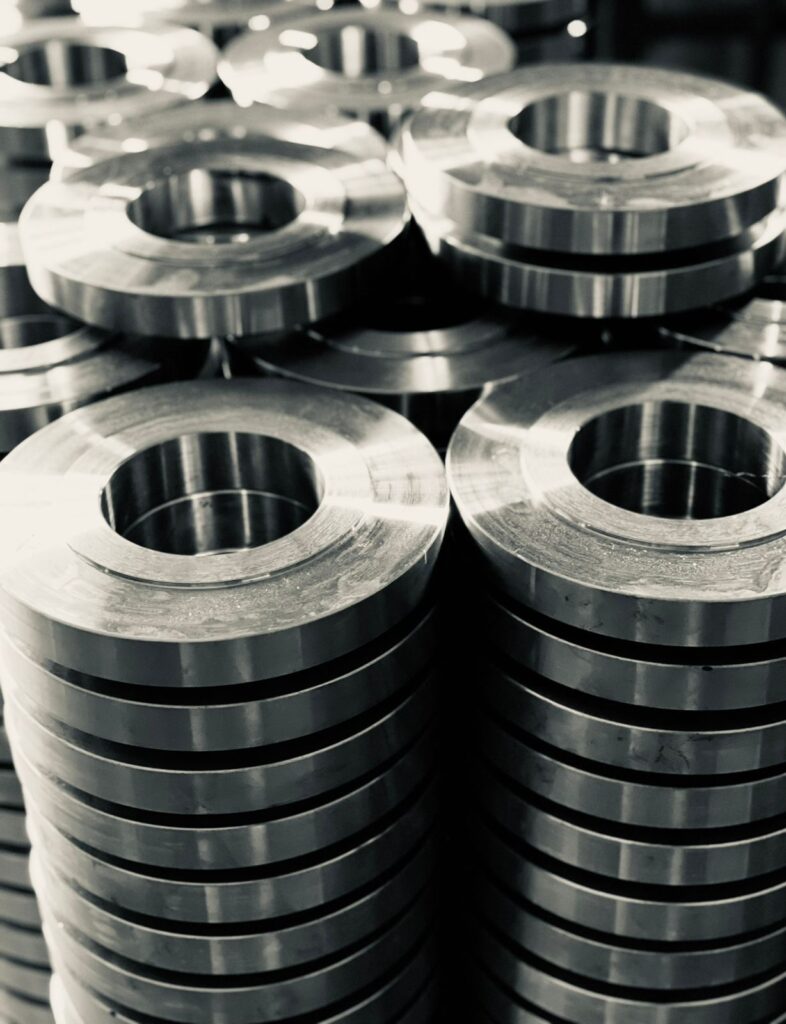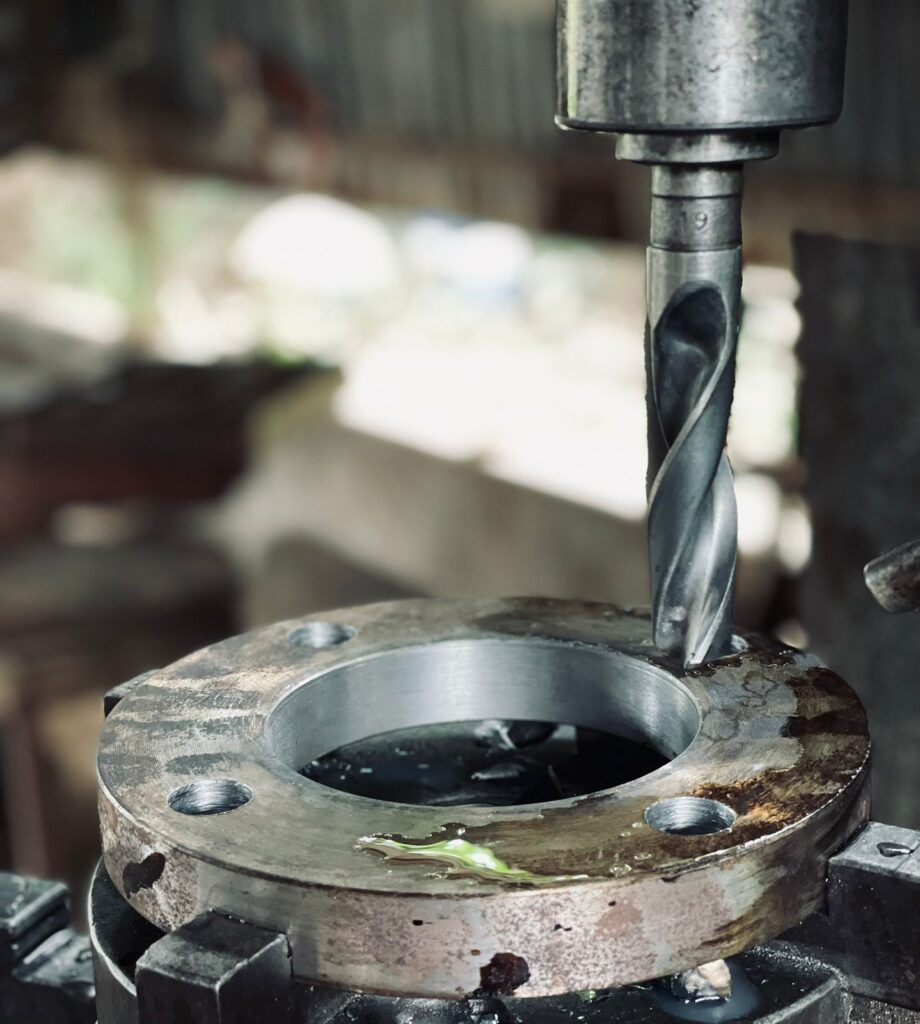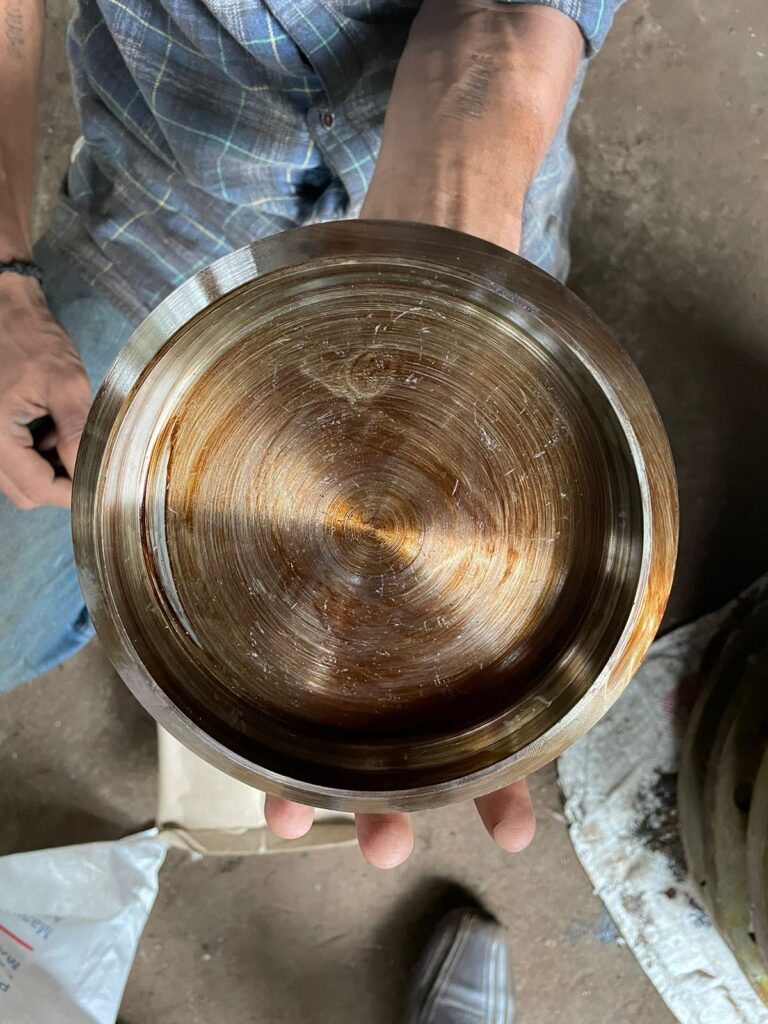What are Stainless Steel 304 Flanges?
Stainless steel 304 flanges are a widely used class of piping components prized for their corrosion resistance, mechanical strength, and formability. As a manufacturer and exporter, we make sure our product is compliant with international standards, available in multiple face types and pressure classes, and supported by testing and traceability. We supply stainless steel 304 flanges to global buyers in petrochemical, food & beverage, pharmaceutical, water treatment, power generation, and general industrial markets.

Why SS 304 Flanges?
- Corrosion resistance: Good resistance to atmospheric corrosion and many chemical environments due to high chromium and nickel content.
- Versatility: Suitable for welded and threaded connections; available in many types (slip-on, welding neck, blind, lap joint, socket weld, threaded).
- Fabrication-friendly: Excellent formability and weldability for domestic and custom configurations.
- Cost-effective: Less expensive than higher-alloy stainless steels (e.g., 316) while offering robust performance in many applications.
Standards & Material Specifications
- Primary material: Stainless Steel 304 (UNS S30400).
- Related variants: SS 304L (low carbon version, UNS S30403) for improved resistance to sensitization during welding.
- Common flange material spec: ASTM A182 F304 (for forged or rolled flanges) and ASTM A240 (for plate/sheet material used in flange manufacture).
- Typical standards for flange dimensions and pressure classes: ASME B16.5 (for sizes NPS 1/2″–24″), ASME B16.47 (large diameter), EN 1092 (European), and JIS where applicable.
Product Range
- Types: Welding Neck, Slip-On, Blind, Socket Weld, Threaded, Lap Joint.
- Face styles: Raised Face (RF), Flat Face (FF), Ring Type Joint (RTJ).
- Pressure classes: 150#, 300#, 600#, 900#, 1500#, 2500# (per ASME B16.5).
- Sizes: 1/2″ up to 24″ (B16.5) and larger per B16.47/EN 1092.
- Finish: Mill finish, polished, or bead-blasted as required.
- Certification options: EN10204 3.1/3.2, Mill Test Certificate (MTC), Material Test Report (MTR).
Mechanical & Chemical Typical Data (SS 304 / ASTM A182 F304)
Note: Values shown are typical ranges; final delivered material should be validated via MTC/MTR.
| Property | Typical Range / Value |
| Chemical composition (wt%) — C | ≤ 0.08 |
| Chemical composition — Cr | 18.0–20.0 |
| Chemical composition — Ni | 8.0–10.5 |
| Chemical composition — Mn | ≤ 2.0 |
| Chemical composition — Si | ≤ 1.0 |
| Chemical composition — P | ≤ 0.045 |
| Chemical composition — S | ≤ 0.03 |
| Density | ~8.00 g/cm³ |
| Tensile strength (ultimate) | 515–720 MPa (typical forged range) |
| Yield strength (0.2% offset) | ~205–310 MPa |
| Elongation (in 50 mm) | ≥ 40% (typical) |
| Hardness (HRB) | ~70–95 |
Comparison: SS 304 vs SS 304L
- SS 304L has lower carbon content (≤0.03) to minimize carbide precipitation during welding and provide improved resistance to intergranular corrosion after welding.
- Use SS 304L for heavy gauge weldments or applications requiring post-weld corrosion resistance; use SS 304 when slightly higher strength is desired.
Manufacturing & Quality Controls

- Raw material traceability: Maintain MTCs linked to heat numbers and lot IDs.
- Forging and machining: Use controlled forging temperatures and precision machining to maintain dimensional tolerances for flanges (per ASME/EN).
- Heat treatment: Annealing per spec, followed by controlled cooling when required.
- Surface finishing: Pickling/passivation to restore corrosion resistance after thermal/mechanical processing.
- Tests typically supplied: PMI or positive material identification, chemical & mechanical tests, UT or RT (radiography) for critical flanges, dimensional inspection, flange face flatness, and hydrostatic tests where applicable.
- Certifications: ISO 9001 quality management, PED (if supplying EU), NORSOK (if serving offshore), and customer-specific audits.
Testing, certification and export documentation
- PMI / chemical composition check (for material verification).
- Hardness testing (HRC/HV) for heat-treated alloys.
- Radiographic testing (RT) or ultrasonic testing (UT) for critical pressure classes.
- Positive Material Identification Certificate (3.1/3.2), MTRs.
- Hydrostatic test of welded assemblies where applicable.
- Third-party inspection (TPI) by client-approved agencies (ABS, BV, DNV, Lloyd’s, SGS).
Packaging & Export Readiness
- Protective packaging: Individual wrapping, wooden crates or pallets with corrosion inhibitors and desiccants.
- Documentation: Commercial invoice, packing list, bill of lading, MTC/MTR (EN 10204 3.1/3.2), test reports, export/import certificates, and COO (certificate of origin).
- Incoterms: Offer EXW, FOB, CFR, CIF depending on customer preference.
- Logistics: Sea freight consolidation for pallets/containers; expedited air shipments for urgent small orders.

Quality assurance & traceability
- Heat-to-part traceability recorded; unique serial/heat numbers laser-etched.
- Full MTRs (ASTM/EN) and 3.1/3.2 certificates issued by default.
- Welding records (WPS/PQR), NDT logs and inspector sign-offs available.
- Continuous improvement via process monitoring and internal audits.
Applications & Industries
- Petrochemical and refineries (process piping, heat exchangers).
- Food & beverage (sanitary piping, hygienic flanges).
- Pharmaceutical (process systems requiring corrosion resistance).
- Water treatment and desalination.
- Power plants (balance-of-plant piping).
- General industrial and structural applications.
Commercial Considerations for Buyers
- MOQ (minimum order quantity): State your standard MOQs and note flexibility for stocked items.
- Lead times: Typical 4–8 weeks depending on size and certification requirements; expedite options for stocked SKUs.
- Pricing factors: Material market price (Ni & Cr), flange type, size, pressure class, testing/certification level, and finish.
- Sample policy: Offer sample pieces or small trial lots for new buyers; provide sample MTCs.
Export Data Table
| Parameter | Typical Export Range / Options | Notes for Exporters |
| Sizes supplied | 1/2″–24″ (ASME B16.5); larger on request | Stock common sizes for faster exports |
| Pressure ratings | 150#–2500# | Match buyer spec (ASME or EN) |
| Material specs | ASTM A182 F304, ASTM A240, UNS S30400 | Include SS 304L (ASTM A182 F304L) as option |
| Face types | RF, FF, RTJ | RTJ for high-pressure/high-integrity applications |
| Surface finish | Mill, 1B, 2B, polished | Sanitary markets often need polished finishes |
| Testing | PMI, Chemical, Mechanical, UT/RT, Hydro | Provide MTC EN 10204 3.1/3.2 on request |
| Packaging | Corrosion-inhibitor wrap, wooden crate | Export-grade packaging prevents transit damage |
| Certifications | ISO 9001, PED, NORSOK (if applicable) | Tailor certifications per target market |
| Lead time | 2–8 weeks typical | Stocked items <2 weeks; custom forged longer |
| Payment terms | T/T, L/C at sight, CAD | Offer competitive payment terms for new buyers |
Request a quote
For firm quotes: provide required NPS, pressure class, material grade, face type, quantity, and destination port/terms